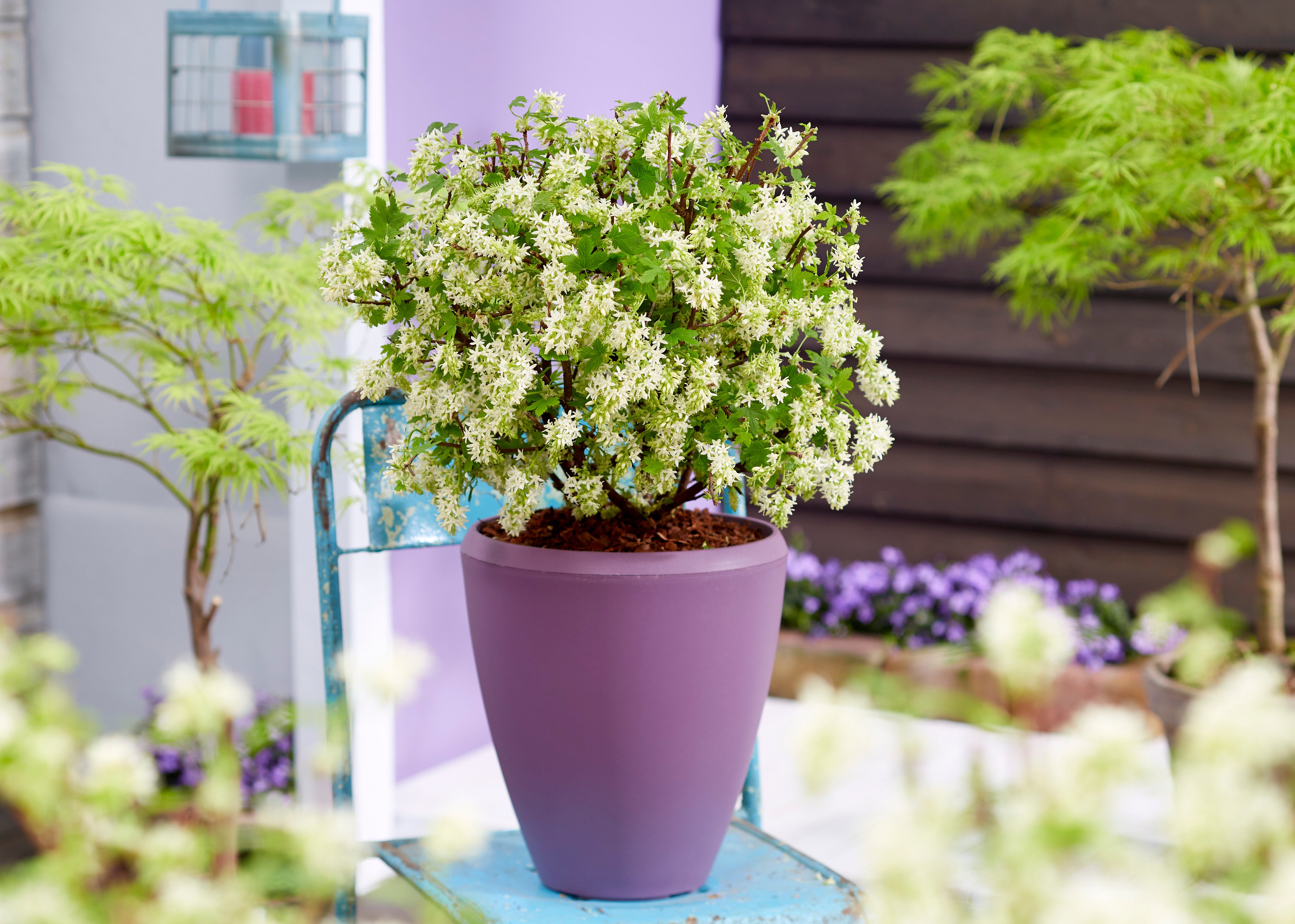
As winter ends, this is the perfect time to refresh the landscape with highly performing plants that will attract early-season pollinators and add colour, texture, and interest to the outdoor space. Global breeding efforts have resulted in a selection of vigorous, richly flowering, and trustworthy garden plants that will last for years.
Fragrant spring sensations
Ribes Amore and Ribes Oregon Snowflake are two stunning varieties of flowering currant that produce clusters of flowers in early spring. Both varieties are easy to grow and maintain, providing a valuable nectar source for early-season pollinators.
Geranium Dreamland has large light pink flowers. An extremely long flowering period from early summer to frost, attracting bees from far and wide. Dreamland is a creeper Geranium and is up to 40 cm high. The same goes for Geranium Kelly-Anne, who boasts bright pink flowers with a darker pink vein. The flowering power is similar to Rozanne's and the flowering period is very long: from late spring to the first frost. Partly because of this long flowering period, Kelly-Anne is valuable for biodiversity.
Flowering spring performers
Deutzia Raspberry Sundae is a stunning shrub that produces an abundance of bright, large pink, star-shaped flowers along the whole branch in late spring to early summer. This Deutzia branches easily, is easy to grow, and requires little maintenance, making it a practical choice for any gardener.
Like Raspberry Sundae, Exochorda Blushing Pearl flowers along the whole branch. The pink flower buds are followed by white flowers that appear in April and May, combined with beautifully incised leaves. This shrub has an upright growth habit and is very hardy, further adding to its practicality.
These top-performing, colourful, and sensationally looking cultivars allow early-spring interest in the landscape and attract early-season pollinators, creating a vibrant and thriving ecosystem.

